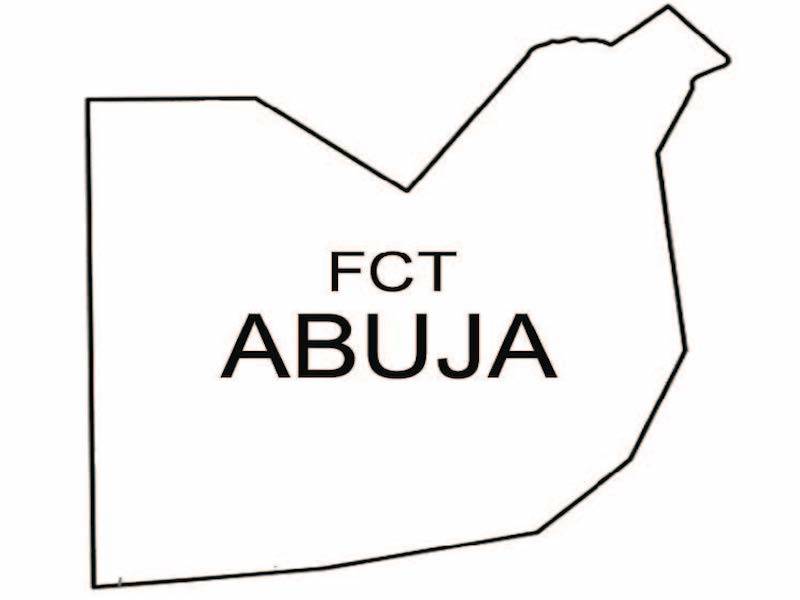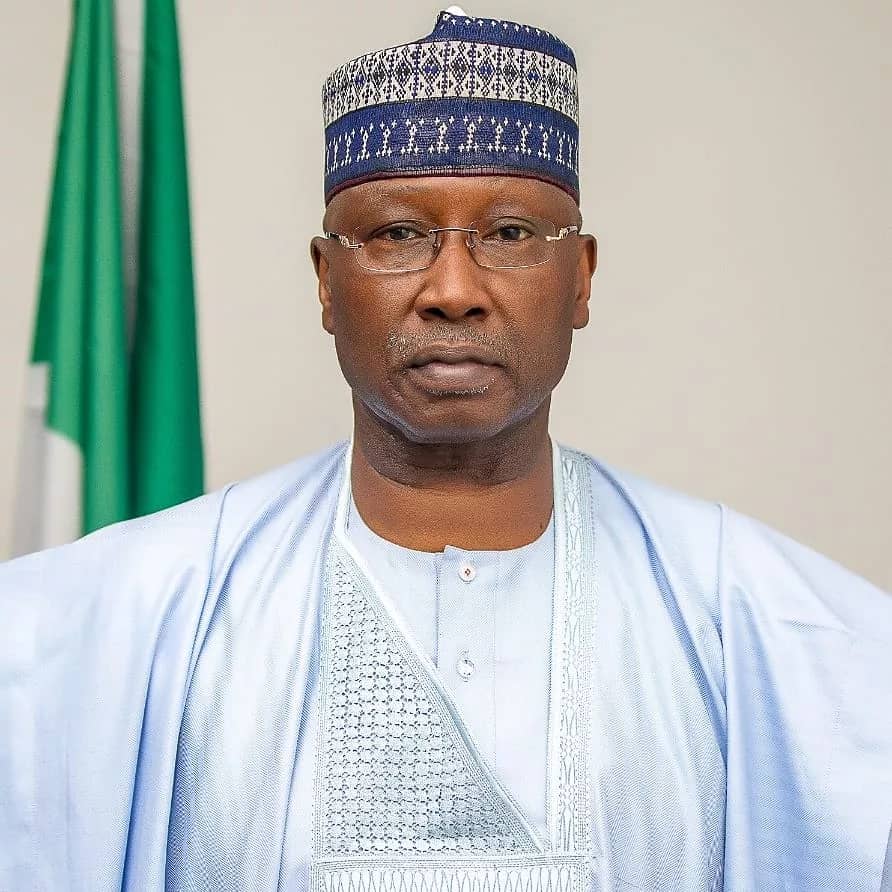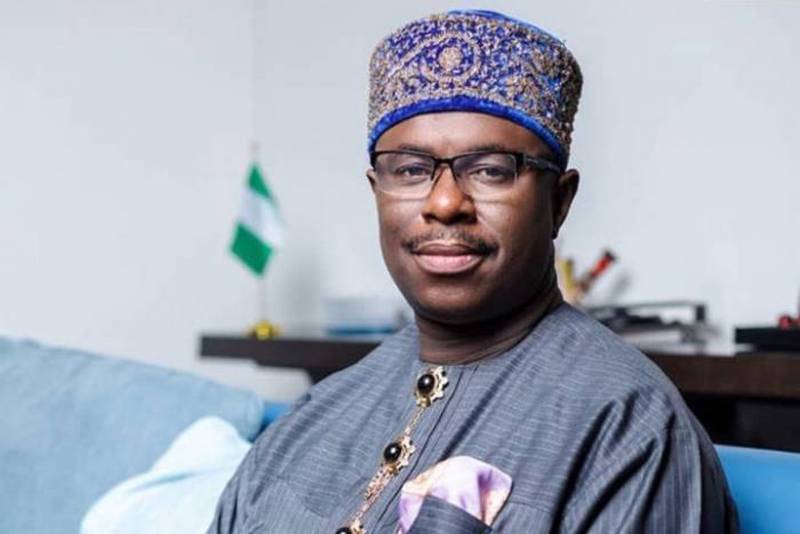A peep into Buhari’s legacy, By Dan Agbese
Email: [email protected]
SMS: 08055001912
The next presi
dent of the Federal Republic of Nigeria will be a very lucky man. He will not have to scratch his head over any of the problems that have bedevilled the Buhari administration – overwhelming insecurity and violence, a sinking economy propped up with foreign and domestic loans, rising poverty, a divisive nation tearing itself apart and a democracy that appears to be more attracted to the kokoma dance than its own stability. Buhari would have done all the head-scratching for him. Think of a roller coaster ride for the next president of thw Federal Republic of Nigeria.
We must take President Buhari’s word for it. He told the 2022 Committee of Business, Political, Media and Civil Society leaders at a dinner in Abuja recently that he will hand over to his very lucky successor “a strong, repositioned agriculture-led, diversified home-grown economy, stable democracy and revamped armed and security forces.”
It is good to know that when Buhari leaves office in 2023, he will be “…leaving a legacy for a united, peaceful and prosperous Nigeria.” It is good to know that post Buhari all these good things and more will be added unto our country and its people. It is good to know that the president is more committed to leaving a better country tomorrow than seeing a much better country today under his own watch. This qualifies as a peculiar brand of altruism.
Still, it is a bit difficult to process. When he sought the people’s thumbs up in 2015 and 2019, he promised those goodies and more. It is difficult to process his revamped promises to accomplish now what he promised us nearly seven years ago in all of 16 months. This is not the time for the president to make such promises. We should have been living those fulfilled promises since 2015 with Nigeria as a secure, “…united, peaceful and prosperous” country. His renewed promise to do more in less time frame is not impossible, this being a country of miracle-workers, but the prospects of his doing in a little over one year the promises that propelled him into the highest political office in the land is a bit of a stretch for those of us who believe that human progress is a process not a sudden spurt of adrenaline.
Under his watch whatever did not need to go wrong has gone wrong. Perhaps Kismet has been snickering at him. The deafening sound of his chest-beating, notwithstanding, his robust claims of how well he has done in nearly seven years as president do not square up with the facts that confront us. That our country is less secure than it was when he assumed office in 2015 is indisputable; that our economy tanked under his watch and put the country through the wrenching pains of recession twice does not have the feel of fiction manufactured by his political enemies; that our economy is burdened by foreign and domestic loans is a fact; that under his watch Nigeria was formally given the unwanted honour as the poverty capital of the world is true; that under his watch it is not rocket science to see that having crassly mismanaged our diversities, we are less united and our country is much less peaceful than it was in 2015; corruption is not losing the anti-graft war but the commanders and the foot soldiers are.
Criminals cast a dark and frightening shadow over the country like never before – kidnapping, robbing, and killing fellow Nigerians on daily basis. The future of millions of children in the northern parts of the country is uncertain. Those of them who are not in the dens of kidnappers like the students of Bethel Baptist High School, Kujama, (they have been in captivity for more than 200 days), cannot go to school for fear of being kidnapped. At least 12 million of our children have been forced out of school so far because of insecurity.
Can the president remedy these and other critical problems facing the nation between now and when he leaves office on May 29, 2023? He verily believes so. He told his guests he intends to spend his remaining time in office “…. not only on consolidating on the achievements of the past seven years but also to leave a legacy for a united, peaceful and prosperous Nigeria.”
That is heavy, coming in the twilight zone of a lame duck presidency.
Truth be told, this was not the country we bargained for when the electorate expressed their preference for Buhari and sent President Goodluck Jonathan home in 2015. We expected to live in the kind of country Buhari is now promising – safe, secure, united, and prosperous – under his watch and beyond. I must have missed something.
Every president believes he is the best thing to happen to the country since the invention of edikaikong soup by the Ibibio in Akwa Ibom State. But despite their fervent belief in their superlative performances, the verdict of history matters more than their personal opinions. History is not always very kind to leaders because it uses a different yardstick to assess their place in their national history. I am beginning to hear the whispers of history already over the din and the drumbeats of the president’s self-assessment. I am sure you have heard these whispers too. They bear repeating here.
The irrepressible former emir of Kano, Muhammad Sanusi II, told his audience at a reception for him in Abeokuta recently: “To be honest, we’re living on extra time. In 2015, we were in a deep hole. In 2023, we’ll be in an even much deeper hole than in 2015.” Whereas the president has promised a “stable democracy and revamped security forces,” the prospects do not look that good for the “next administration.”
In his piece, “What’s Nigeria’s government for?” of January 31, 2022, David Pilling, a Financial Times editor, noted that the presidential election of “… February 2023 will draw the curtain on eight years of Muhammadu Buhari, on whose somnolent watch Nigeria has sleepwalked closer to disaster. Buhari has overseen two terms of economic slump, rising debt and a calamitous increase in kidnapping and banditry – the one thing you might have thought a former general could control.”
The claims and the facts run along parallel lines.
In its editorial of January 30, 2022, “Scandalous U-turn on fuel subsidy,” on the flip-flop by the president on the vexed problem of fuel subsidy removal, the Daily Trust wrote: “Critics of this government often point to an array of governance failures – rising poverty, worsening insecurity, poor public communication that fuels disunity, and so on – as evidence that the president is doing a bad job. These may be true, but they still miss the point. The problem is not that the administration is doing a bad job; it is that the president is not doing the job at all.”
If, as the newspaper asserted, the president has not been doing the job in nearly seven years, do we have any reasons to expect him to leave the kind of legacy he has promised? The days of promises were in 2015 and 2019. In between were the days we expected the promises to be fulfilled for our country to become a secure, united, and peaceful nation with a robust economy, a balanced budget, and articulated paradigm shift in national development that would see the hands of all adult citizens on the plough. Why would Buhari wait for the last year of his administration to do what he promised to do to set our country on a path of greatness? I suppose the way of politicians passes all understanding.



